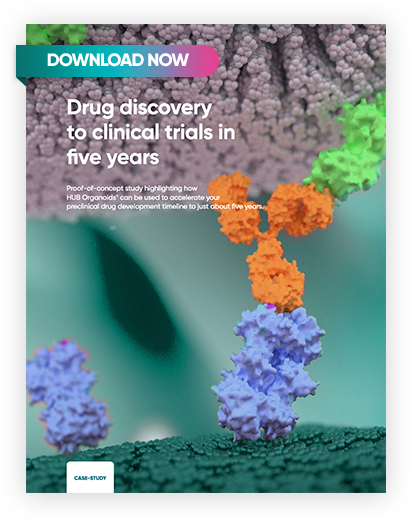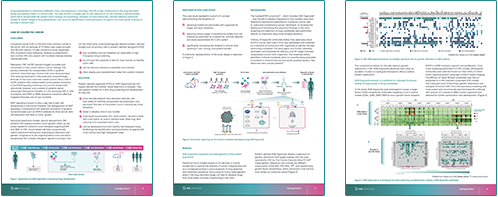CASE STUDY
Drug discovery to clinical
trials in five years
Proof-of-concept study highlighting how HUB Organoids can be used to
accelerate your preclinical drug development timeline to just about five years

Drug development is inefficient, slow, and expensive. In oncology, only 5% of agents that undergo preclinical development show results in clinical trials. This high drug attrition is majorly due to the lack of clinically relevant early stages that drive the prioritization of agents with better chances of succeeding in the clinic.
HUB Organoids are patient-derived mini-organs in a dish that faithfully recapitulate the genetic and phenotypic features of the original tumor. Thanks to their predictive power and amenability to large-scale drug screens, they are successfully used to develop the first clinical candidate that inhibits tumor growth and metastasis in colorectal cancer, in just about five years.
Download this case study to discover:
- How HUB Organoids can be applied at multiple stages of the preclinical drug development pipeline, starting from lead identification, and optimization to the mechanism of action investigation.
- How HUB Organoids can be used to devise therapeutic interventions targeted toward a subset of the patient population, thereby carving a critical path forward in oncology precision medicine
- The key features of HUB Organoids that make them best-in-class models for drug development
Sample pages

